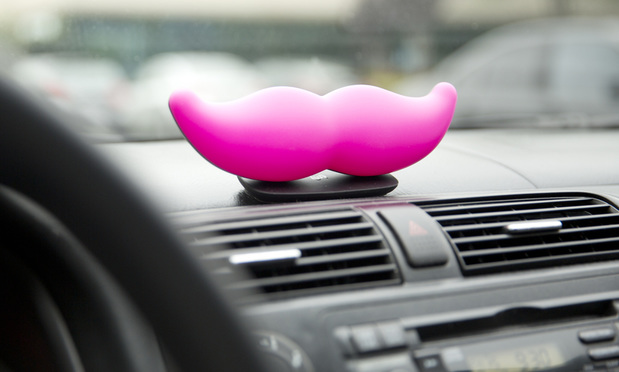 Lyft car. JasonDoiy/ALM.
Lyft car. JasonDoiy/ALM.
Prominent on-demand companies Lyft Inc. and Postmates Inc. areunlawfully classifying their workers as independent contractors, according to newlawsuits that mark the beginning of an anticipated flood of casestethered to a California Supreme Court ruling that upendedemployee classification schemes.
|Shannon Liss-Riordan, a Boston-based lawyer who has longchallenged how gig economy companies classify their workforces,filed two separate lawsuits this week on behalf of workers forPostmates, an on-demand deliveryservice, and the ride-hailing company Lyft.
|The lawsuits come just days after the California Supreme Courtruling in Dynamex Operations West v. Superior Court seta more rigid standard for how a company candeem a worker as an independent contractor. The court reversed amore flexible standard, preferred by the business community, thatgave companies more room for interpretation. Employment attorneyshave said the new standard could make it difficult for gig economycompanies to argue their workers are contractors and notemployees.
|Related: 3 takeaways from the California Supreme Court's gigeconomy ruling
|The distinction between independent contractor and employee is akey tension in the growing gig economy and has been the source ofhigh-profile trials, settlements and ongoing lawsuits. Manyon-demand companies build their workforces around independentcontractors, who are not entitled to the same benefits as employees.
|The lawsuits filed in California Superior Court on May 8 argueon behalf of workers for minimum wage requirements and workexpenses. The complaints both cite the “ABC” classification testadopted by the California Supreme Court ruling, and they argue thetwo companies are willfully ignoring that decision.
|Lyft and Postmates representatives did not immediately respondto requests for comment.“It is going to be very difficult for thesecompanies to justify independent contractor status for theirdrivers,” Liss-Riordan told the Recorder on Thursday. “AfterDynamex, we believe that the companies' continuedclassification of the workers as independent contractors inCalifornia is a willful violation of the law.”
|Because many new gig economy workers sign arbitration agreementsthat preclude class actions, Liss-Riordan said the cases may haveto be pursued on an individual basis. The lawfulness of classaction waivers in employment agreements is at the heart of a U.S. Supreme Courtcase this term.
|“It remains to be seen, however, whether it will be possible topursue these cases on a class basis, given the companies'arbitration clauses,” Liss-Riordan said. “We are waiting for theU.S. Supreme Court to answer that question.”
|Lyft and Postmates are not alone in facing new issues after theDynamex ruling. The ruling could impact a Grubhub Inc.worker classification dispute that's pending in the U.S. Court ofAppeals for the Ninth Circuit.
|Liss-Riordan, who represented a Grubhub employee at trial inCalifornia, recently asked the Ninth Circuit to return the workerclassification dispute back to the district court. In February, afederal trial judge ruled Grubhub hadproperly classified a driver as an independent contractor and notan employee.
|“Notably, the Dynamex decision makes clear thatCalifornia's adoption of the ABC test is a reinterpretation ofexisting law, and thus the decision will apply retroactively,including to plaintiff in this case,” Liss-Riordan wrote in a court filing on May 4. Shesaid the Dynamex decision “upends” how the trial court hadresolved the dispute in favor of Grubhub.
|Grubhub Inc.'s lawyers at Gibson, Dunn & Crutcher plan tofile a response to the remand request by May 18, according to courtfilings in the Ninth Circuit.
|Liss-Riordan has previously sued Lyft and Postmates. In the Lyftcase, the parties reached a settlement in federal court for $27million, which released claims only up until the date ofsettlement.
|Management-side employmentattorneys have said the Dynamex rulingwould likely inspire new misclassification litigation. Among otherthings, according to the ruling, a contractor is someone who isperforming work outside the company's main business. A ride-hailingcompany might argue, however, that it is not a transportationcompany but rather is a technology company.
|The new cases against Postmates and Lyft come as Lichten &Liss-Riordan closes its San Francisco office two years afteropening there. “I am still in California myself frequently andexpect to continue to be there often,” Liss-Riordan told TheRecorder last month.
|
Complete your profile to continue reading and get FREE access to BenefitsPRO, part of your ALM digital membership.
Your access to unlimited BenefitsPRO content isn’t changing.
Once you are an ALM digital member, you’ll receive:
- Critical BenefitsPRO information including cutting edge post-reform success strategies, access to educational webcasts and videos, resources from industry leaders, and informative Newsletters.
- Exclusive discounts on ALM, BenefitsPRO magazine and BenefitsPRO.com events
- Access to other award-winning ALM websites including ThinkAdvisor.com and Law.com
Already have an account? Sign In
© 2024 ALM Global, LLC, All Rights Reserved. Request academic re-use from www.copyright.com. All other uses, submit a request to [email protected]. For more information visit Asset & Logo Licensing.








